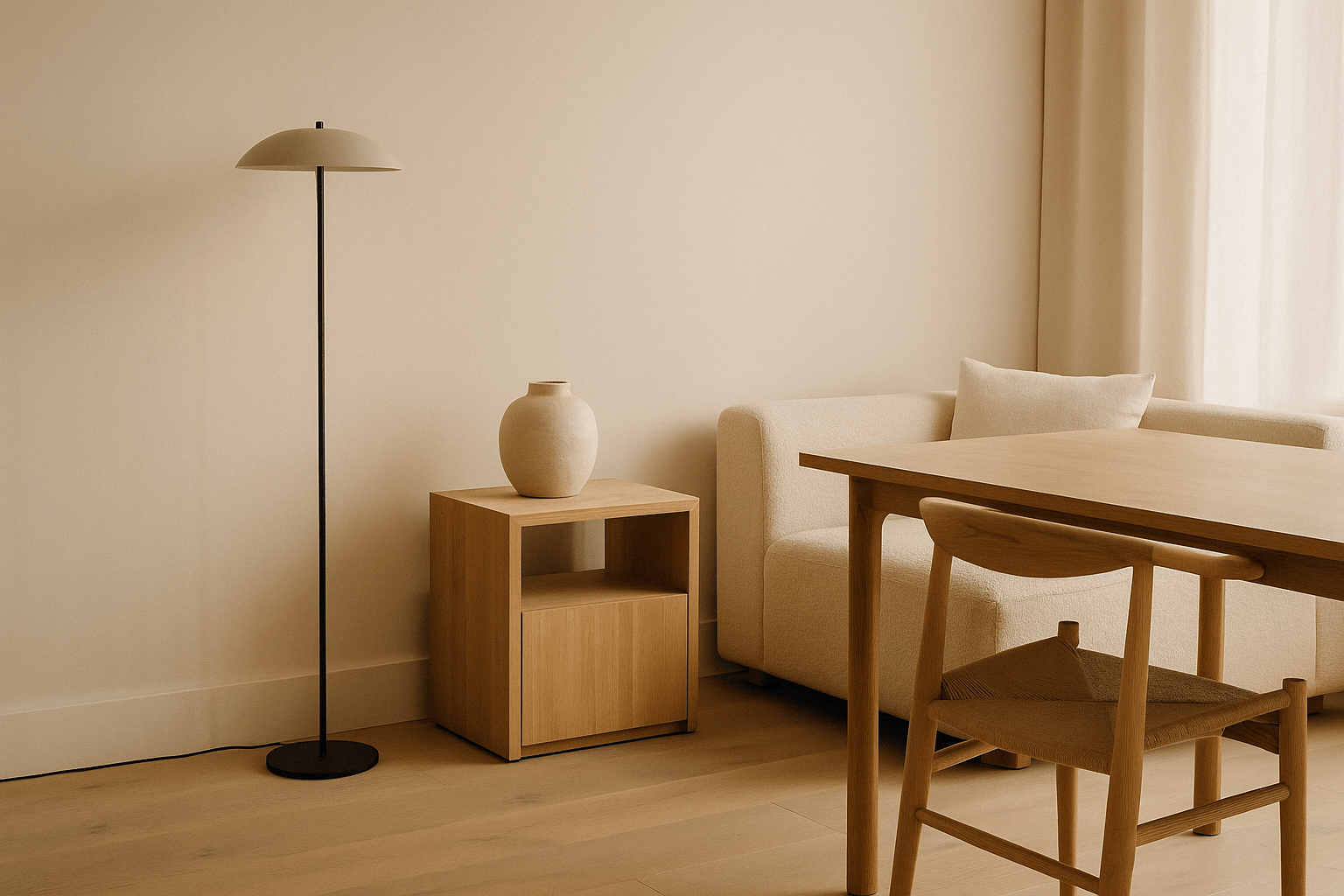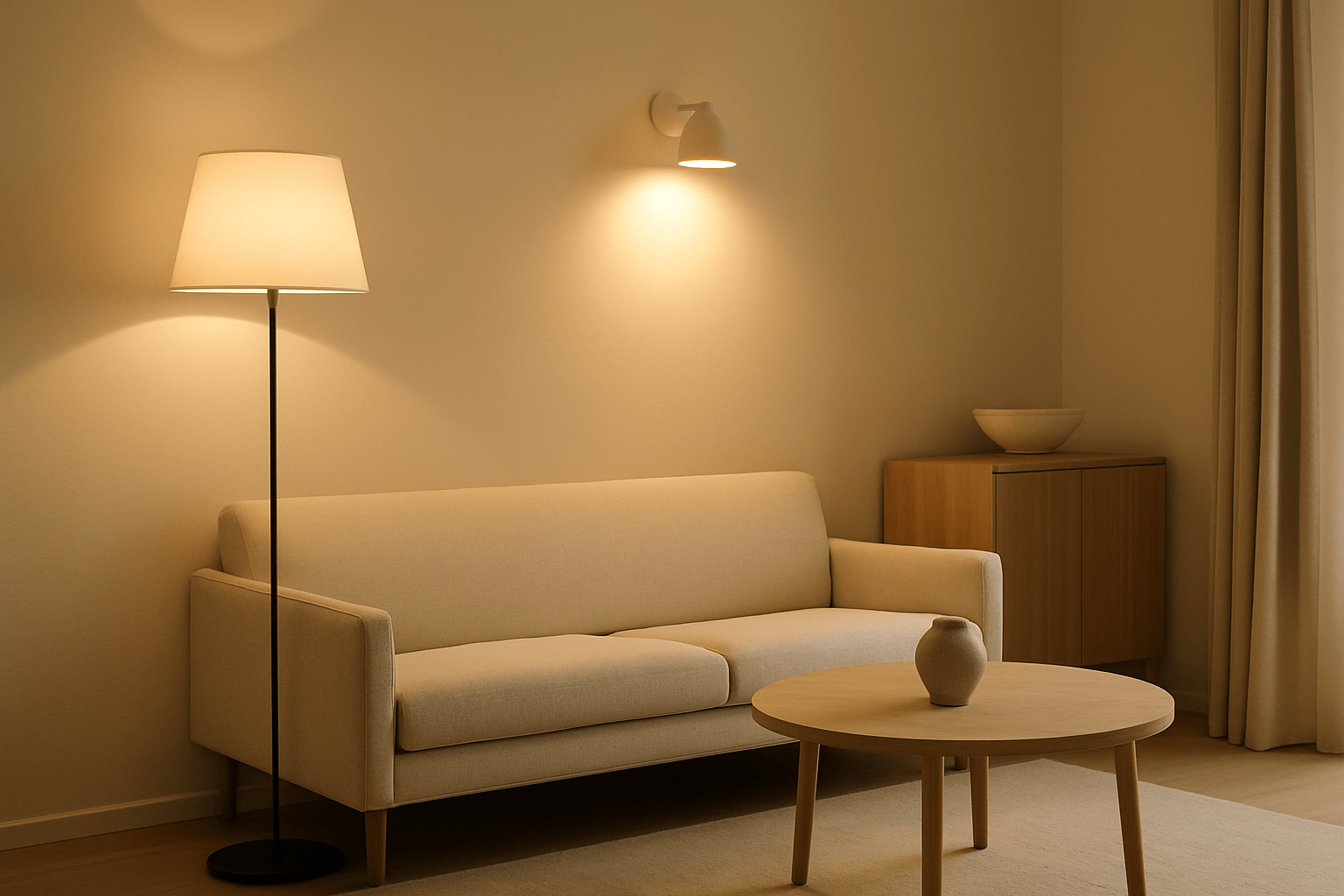Atmosphere Is Created as Much by Shadow as by Light
Minimalist interiors are known for their simplicity.
But what makes them feel alive, calming, and dimensional is not just light — it’s the play of light and shadow.
Designing with both in mind brings softness, depth, and presence to your space.
1. The Emotional Impact of Shadows
Shadows:
-
Add visual texture without adding physical objects
-
Create a sense of rhythm and movement
-
Offer calmness through soft contrast
In minimalist design, where clutter is reduced, shadows become a subtle form of decoration.
2. Letting Natural Light Shape the Space
Throughout the day, natural light:
-
Moves across surfaces
-
Creates organic shadow play on walls, floors, and objects
-
Evolves the mood of the room
Minimalist homes embrace this impermanence, allowing the light to “design” the space as it shifts.
3. Softening with Diffused Lighting
Harsh, direct light flattens a room.
To maintain depth and calmness:
-
Use lampshades and diffusers to soften light
-
Opt for wall-washing sconces
-
Layer light sources to avoid uniform brightness
This creates gentle shadow gradients that add emotional warmth.
4. Negative Space and Shadow as Design Tools
Leaving space intentionally bare allows shadows to:
-
Animate surfaces throughout the day
-
Highlight material textures
-
Frame objects with soft, changing outlines
In minimalism, less becomes more when shadow is allowed to breathe.
5. The Wabi-Sabi Influence: Beauty in Impermanence
The Japanese aesthetic of Wabi-Sabi celebrates the beauty of transience and imperfection.
Shadows embody this — always changing, never static.
Designing with shadow invites a lived-in, organic quality that aligns with mindful living.
Final Thought
Light reveals.
Shadow gives depth.
In minimalist interiors, the dialogue between light and shadow creates quiet, living atmospheres.
It’s an invisible design layer — subtle, but profoundly felt.
Design for light.
Leave space for shadow.
















